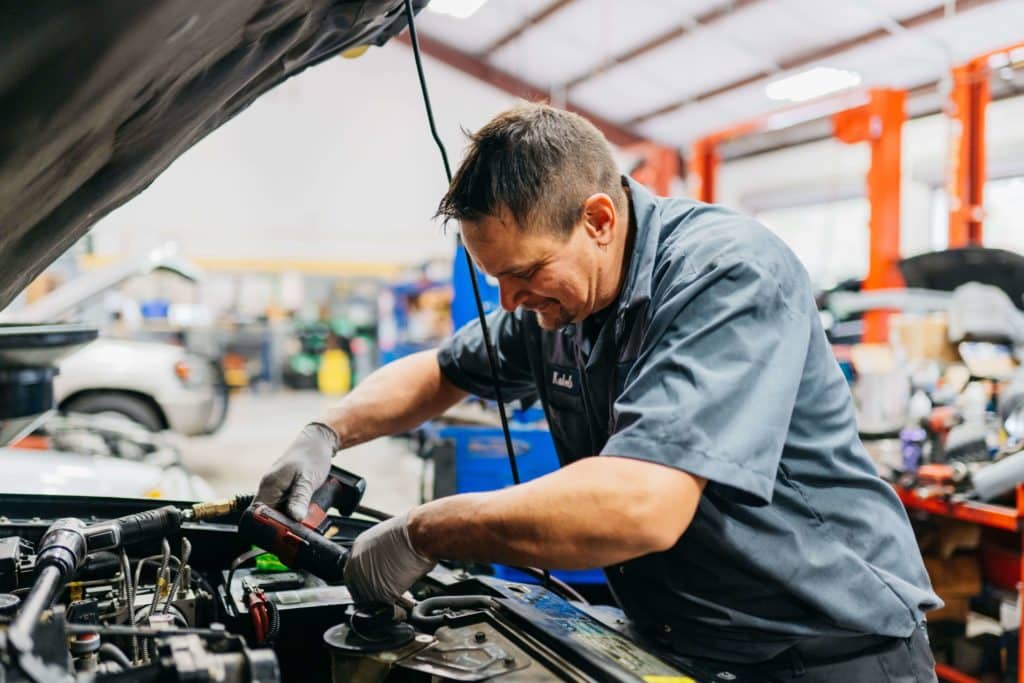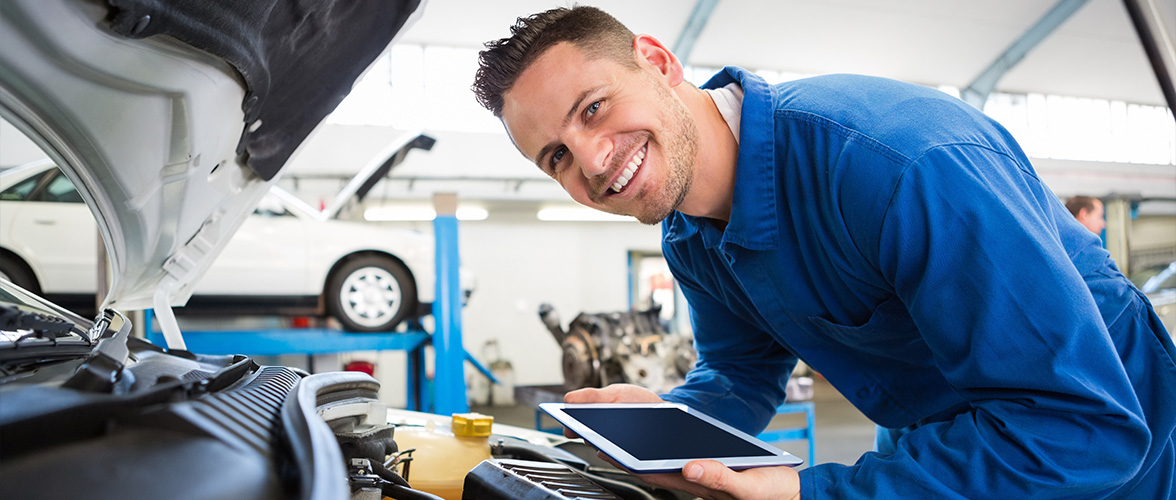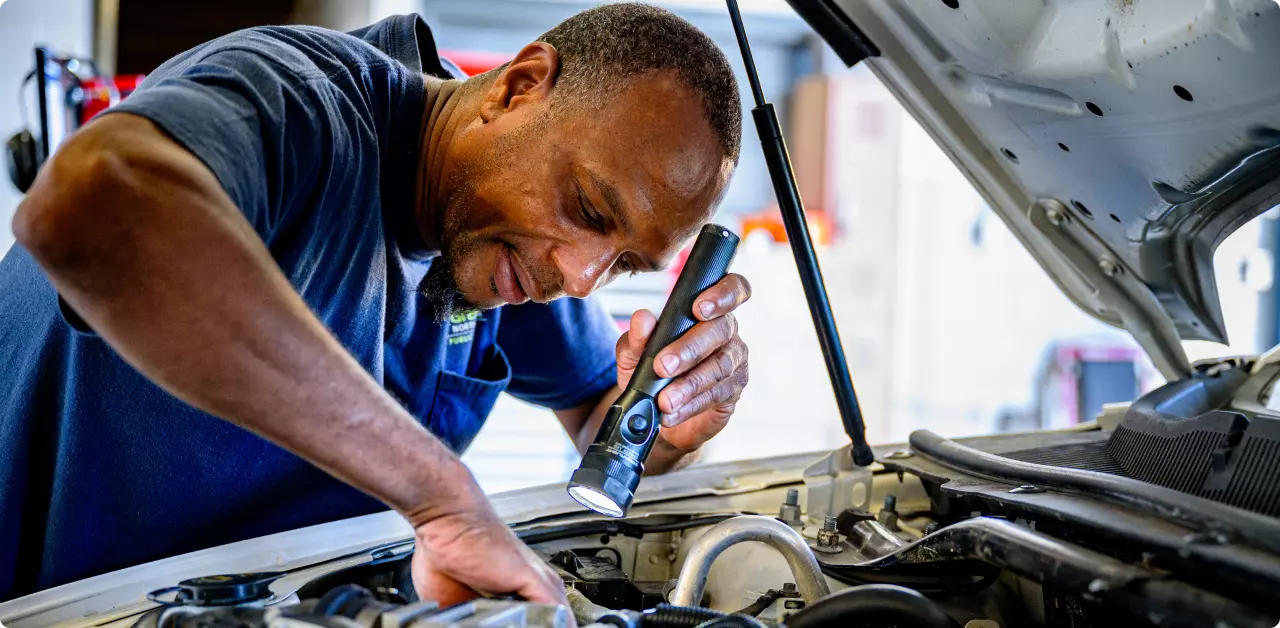Featured
When your auto overheats, it can seem like a major emergency situation, yet staying tranquil and following the best actions can stop severe engine damages and assistance get you back when driving safely. In this message, we'll explore what to do if your car overheats and provide preventative pointers to lower the threat of overheating in the future.
What to Do If Your Auto Overheats. If your cars and truck begins to get too hot is to pull over to a risk-free area as quickly as possible, draw Over to a Safe Area The first and most vital action. Turn on your danger lights and direct your car to the shoulder or right into a parking area. Keeping your automobile running while it's overheated can cause extreme damages to the engine, so it's important to close the engine off today.
Allow the Engine Cool Down Once you have actually securely quit, enable the engine to cool down. You should never ever try to open the radiator cap while the engine is still warm, as the launch of steam or warm coolant can create burns. Wait at the very least 15-20 mins to allow the engine temperature level to drop to a more secure degree prior to continuing.
![]()
Check the Coolant Degree After the engine has cooled, inspect the coolant degrees by checking the reservoir or radiator. If it's low, top it off with a blend of coolant and water (as specified by your automobile's maker) Constantly make use of caution when opening up the coolant tank, as pressure may have constructed up.
Search For Visible Leaks While you wait for the engine to cool, aesthetically inspect the radiator, hose pipes, and coolant storage tank for any noticeable leaks or fractures. A leaking radiator or pipe is an usual reason of getting too hot. It's far better to call a tow service than risk driving additionally and creating extra damage. if you find a substantial leakage.
Reboot the Engine After allowing the engine to cool and ensuring the coolant is topped off, begin the engine and keep track of the temperature gauge. If the temperature remains to rise swiftly, it's finest to shut the engine off and call for roadside support or a tow to the local technician.
![]()
How to avoid Getting Too Hot in the Future. Frequently Inspect Coolant Degrees Among the easiest ways to stop overheating is by preserving the right degree of coolant. In time, coolant can evaporate, so consistently examine the coolant levels in the storage tank. Reduced coolant degrees can create the engine to overheat swiftly, so leading it off as needed.
Inspect the Radiator The radiator plays a critical role in keeping the engine cool. Occasionally examine the radiator for any blockages, dirt, or debris that can block airflow. If you notice any kind of indications of damages, such as corrosion or leakages, have it fixed or changed asap.
Change the Thermostat and Water Pump A malfunctioning thermostat or water pump is an usual root cause of getting too hot. The thermostat controls the flow of coolant, while the water pump flows it through the engine. It can prevent correct cooling if either part is damaged. Have your mechanic check these components on a regular basis and change them when necessary.
Flush the Cooling System Over time, coolant can degrade and come to be inefficient, creating a buildup of debris in the system. Purging the air conditioning system every 30,000 miles, or as recommended in your car's manual, helps to get rid of any kind of sludge or buildup and guarantees the cooling system is operating properly.
Monitor the Problem of the Pipes The hoses in your car's air conditioning system can break or crack over time. Check the hose pipes for any kind of indications of wear, such as bulging, splits, or leakages, and change them if needed. Preventing coolant leaks can go a lengthy method in staying clear of getting too hot.
![]()
Drive Properly Aggressive driving, such as increasing rapidly or driving at broadband, puts extra pressure on your engine and its cooling system. Try to drive at moderate speeds, particularly on hot days or when driving on steep inclines, to minimize the possibilities of getting too hot.
Avoid Overwhelming Your Automobile Carrying excessive weight in your vehicle places stress and anxiety on the engine and air conditioning system. Always bear in mind your car's weight restriction, particularly if you're carrying heavy loads, towing a trailer, or driving lengthy ranges in heat.
Conclusion. An overheating cars and truck can be a frightening experience, yet recognizing exactly how to respond and stop it can save you time, money, and potential engine damage. Constantly examine your coolant levels, inspect vital elements like the radiator, thermostat, and pipes, and follow a regular upkeep timetable. By staying on top of your car's air conditioning system, you can minimize the risk of overheating and delight in a smoother, more secure driving experience.
What to Do If Your Auto Overheats. If your cars and truck begins to get too hot is to pull over to a risk-free area as quickly as possible, draw Over to a Safe Area The first and most vital action. Turn on your danger lights and direct your car to the shoulder or right into a parking area. Keeping your automobile running while it's overheated can cause extreme damages to the engine, so it's important to close the engine off today.
Allow the Engine Cool Down Once you have actually securely quit, enable the engine to cool down. You should never ever try to open the radiator cap while the engine is still warm, as the launch of steam or warm coolant can create burns. Wait at the very least 15-20 mins to allow the engine temperature level to drop to a more secure degree prior to continuing.

Check the Coolant Degree After the engine has cooled, inspect the coolant degrees by checking the reservoir or radiator. If it's low, top it off with a blend of coolant and water (as specified by your automobile's maker) Constantly make use of caution when opening up the coolant tank, as pressure may have constructed up.
Search For Visible Leaks While you wait for the engine to cool, aesthetically inspect the radiator, hose pipes, and coolant storage tank for any noticeable leaks or fractures. A leaking radiator or pipe is an usual reason of getting too hot. It's far better to call a tow service than risk driving additionally and creating extra damage. if you find a substantial leakage.
Reboot the Engine After allowing the engine to cool and ensuring the coolant is topped off, begin the engine and keep track of the temperature gauge. If the temperature remains to rise swiftly, it's finest to shut the engine off and call for roadside support or a tow to the local technician.

How to avoid Getting Too Hot in the Future. Frequently Inspect Coolant Degrees Among the easiest ways to stop overheating is by preserving the right degree of coolant. In time, coolant can evaporate, so consistently examine the coolant levels in the storage tank. Reduced coolant degrees can create the engine to overheat swiftly, so leading it off as needed.
Inspect the Radiator The radiator plays a critical role in keeping the engine cool. Occasionally examine the radiator for any blockages, dirt, or debris that can block airflow. If you notice any kind of indications of damages, such as corrosion or leakages, have it fixed or changed asap.
Change the Thermostat and Water Pump A malfunctioning thermostat or water pump is an usual root cause of getting too hot. The thermostat controls the flow of coolant, while the water pump flows it through the engine. It can prevent correct cooling if either part is damaged. Have your mechanic check these components on a regular basis and change them when necessary.
Flush the Cooling System Over time, coolant can degrade and come to be inefficient, creating a buildup of debris in the system. Purging the air conditioning system every 30,000 miles, or as recommended in your car's manual, helps to get rid of any kind of sludge or buildup and guarantees the cooling system is operating properly.
Monitor the Problem of the Pipes The hoses in your car's air conditioning system can break or crack over time. Check the hose pipes for any kind of indications of wear, such as bulging, splits, or leakages, and change them if needed. Preventing coolant leaks can go a lengthy method in staying clear of getting too hot.

Drive Properly Aggressive driving, such as increasing rapidly or driving at broadband, puts extra pressure on your engine and its cooling system. Try to drive at moderate speeds, particularly on hot days or when driving on steep inclines, to minimize the possibilities of getting too hot.
Avoid Overwhelming Your Automobile Carrying excessive weight in your vehicle places stress and anxiety on the engine and air conditioning system. Always bear in mind your car's weight restriction, particularly if you're carrying heavy loads, towing a trailer, or driving lengthy ranges in heat.
Conclusion. An overheating cars and truck can be a frightening experience, yet recognizing exactly how to respond and stop it can save you time, money, and potential engine damage. Constantly examine your coolant levels, inspect vital elements like the radiator, thermostat, and pipes, and follow a regular upkeep timetable. By staying on top of your car's air conditioning system, you can minimize the risk of overheating and delight in a smoother, more secure driving experience.
Latest Posts
Full-Service Auto Repairs at Montclare Auto Repair - Explore Now
Published Apr 21, 25
2 min read
Chill, Sip, and Enjoy at Shake Street
Published Apr 21, 25
2 min read
Full Circle Strategic Marketing - Achieve More with Our Trusted Agency for Lasting Success
Published Apr 21, 25
2 min read
More
Latest Posts
Full-Service Auto Repairs at Montclare Auto Repair - Explore Now
Published Apr 21, 25
2 min read
Chill, Sip, and Enjoy at Shake Street
Published Apr 21, 25
2 min read
Full Circle Strategic Marketing - Achieve More with Our Trusted Agency for Lasting Success
Published Apr 21, 25
2 min read